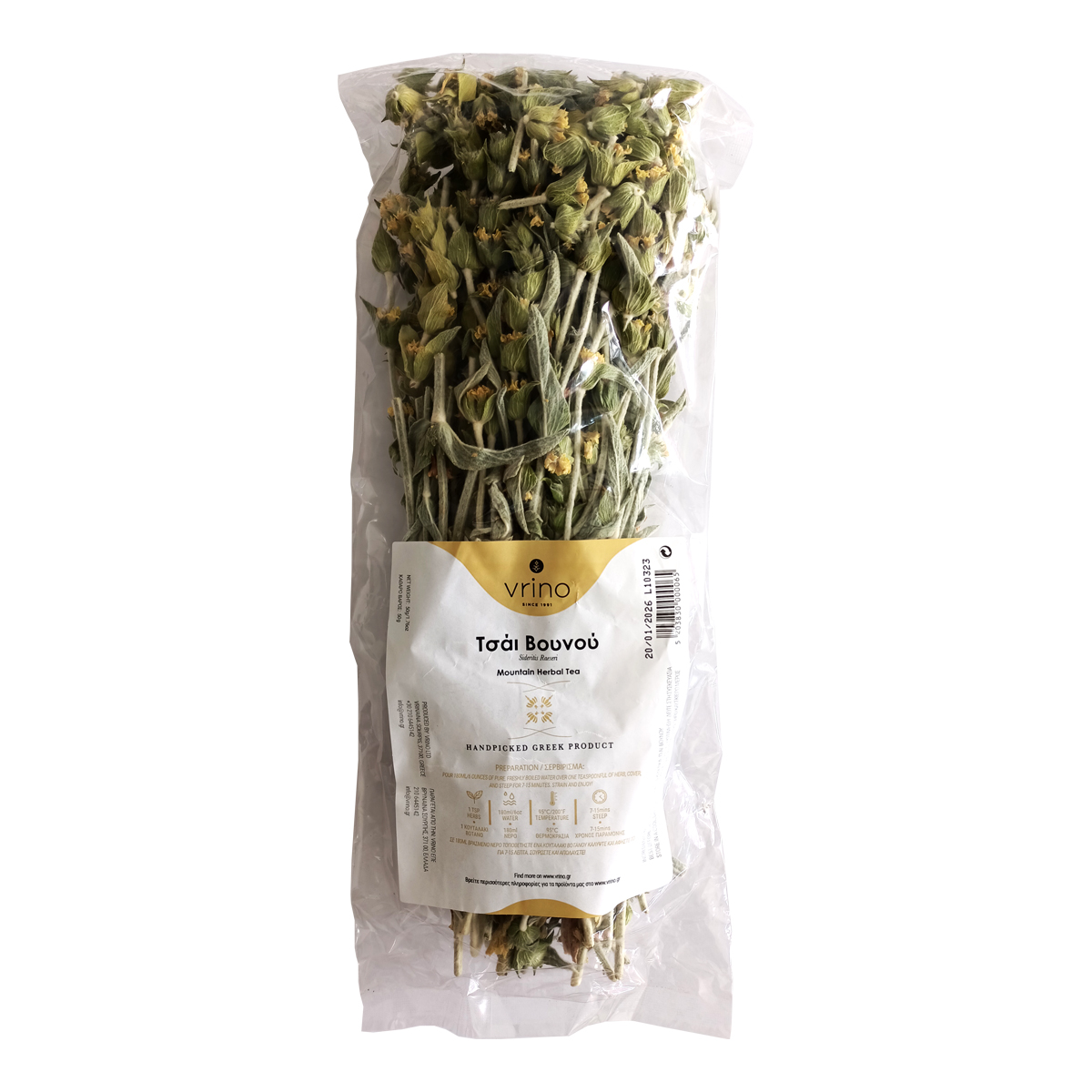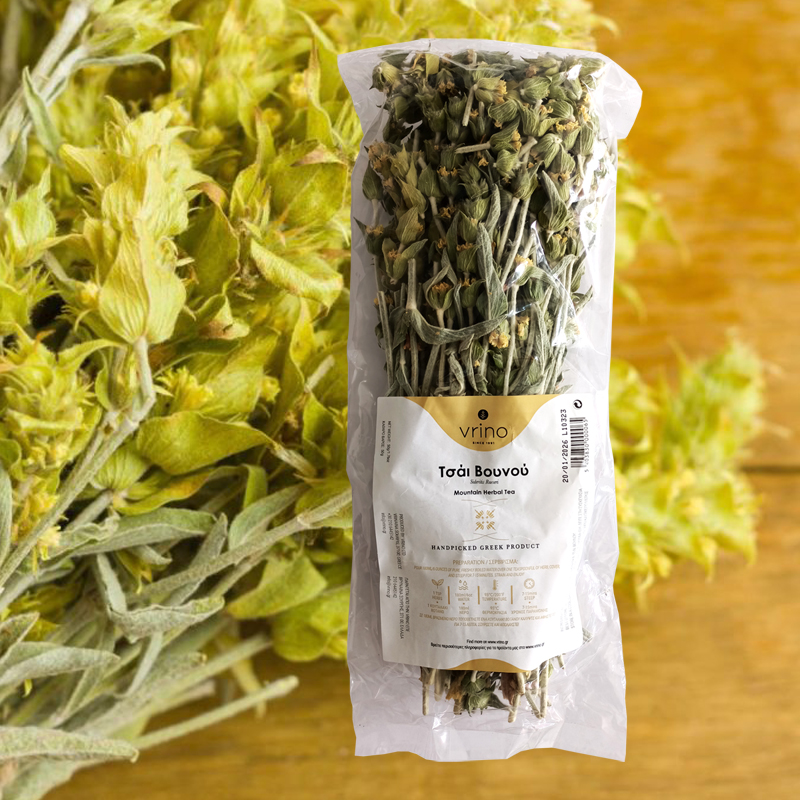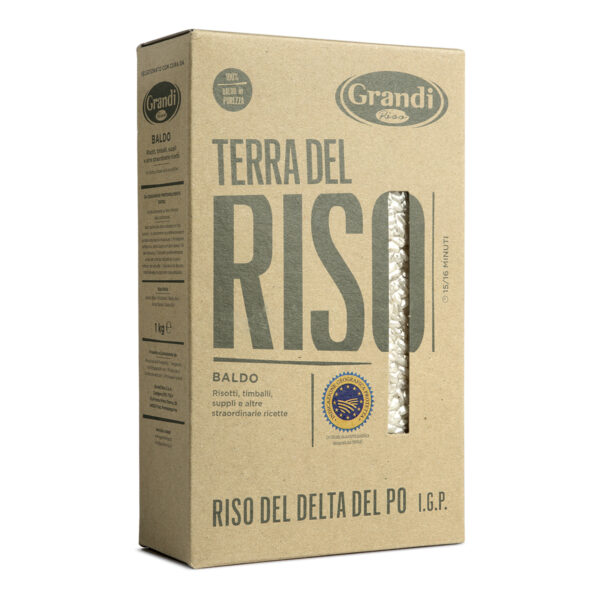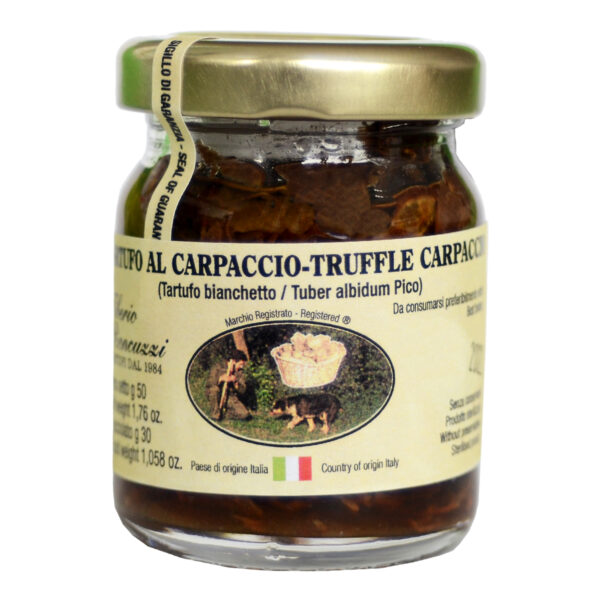Description
What is the Greek Mountain Tea?
Sideritis, the plant this tea is brewed from, is commonly known as ironwort, and got its name from the Greek word for iron, Sideros. In ancient times, the herb was used to heal wounds caused by iron weapons during battles.
The Sideritis plant grows wild at high elevations over 1000 meters and flourishes with the sun in partially-arid temperatures. Essentially, this means it doesn’t need much soil, water, or care to survive. Because it is primarily found on the rockiest cliffs of the mountain sides, it is harvested in small sums. For centuries, the ancient Greek shepherds high up in the mountains started to brew this unique plant to keep warm and protect them from getting sick.
What does Mountain Herbal Tea taste like?
Sideritis is a flowering perennial therefore mountain tea has a floral, earthy, slightly sweet, and mild taste to it. Its taste is known to resemble a blend of mint, chamomile, and citrus.
Health Benefits of Mountain Tea
Mountain tea was used by the ancient Greeks as a healing herbal, medicinal drink. Hippocrates, the Greek philosopher known as the father of modern medicine, hailed its benefits for the immune and respiratory systems. In Greece today, mountain tea is consumed most often in the winter, to combat the common cold and flu.
Mountain tea contains high levels of antioxidants, polyphenols, and essential oils, including flavonoids. One study found that thanks to its powerful levels of antioxidants, mountain tea is as potent as green tea at promoting the body’s antioxidant defenses and preventing oxidative stress. There continues to be a number of studies examining the health benefits of mountain tea, which has been shown to have the potential to boost immune response as an anti-inflammatory, aid in digestion, and even prevent osteoporosis.
Mountain Tea and Alzheimer’s disease
Researchers are also beginning to investigate mountain tea’s potential as a weapon against cognitive decline. A recent study showed extracts from the Sideritis plant can help prevent and treat Alzheimer’s disease and dementia. According to the Journal of Alzheimer’s disease, consuming mountain tea has a positive impact on existing mental and cognitive conditions.
Side effects of Mountain Herbal Tea
There are no known side effects or negative effects of mountain tea. Mountain tea is naturally caffeine-free so it can be enjoyed at any time of the day.
Mountain Herbal Tea and Pregnancy
While folk wisdom promotes the consumption of mountain tea during pregnancy, it is important to note that no herbal teas have been studied for their effects on pregnant women or a developing fetus. For this reason, all herbal teas should be consumed with caution by women who are pregnant or trying to conceive.
How to Make Mountain Tea
If you’re brewing just one cup of mountain tea, break up the plant stems and place in the infuser, together with flowers and leaves, then add boiling water from your kettle. Allow to steep for at least five minutes. Keep the lid on your infuser at all times, which prevents the beneficial essential oils found in mountain tea from escaping with the steam.
Iced mountain tea
There’s no reason why you can’t enjoy Greek mountain tea year round! To make iced mountain tea, follow the steps above, then chill in the refrigerator. If you’re adding honey, it’s best to add it while the tea is still warm so that the honey dissolves completely. You can make big batches of mountain tea and keep a pitcher in the fridge for easy serving throughout the week! If doing this, add a squeeze of lemon juice — the citric acid and vitamin C help preserve the beneficial flavonoids in the tea.






